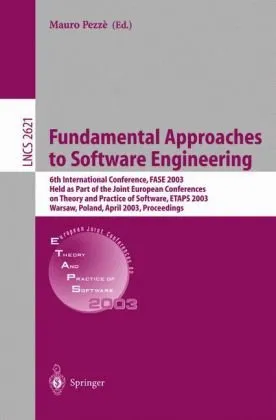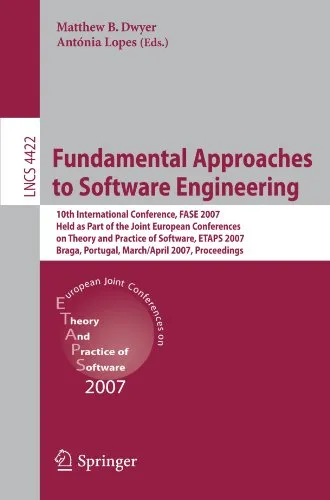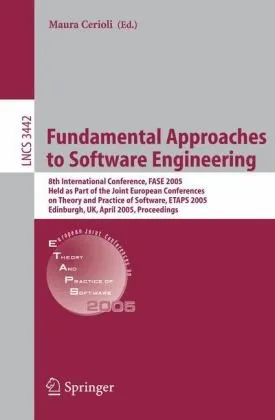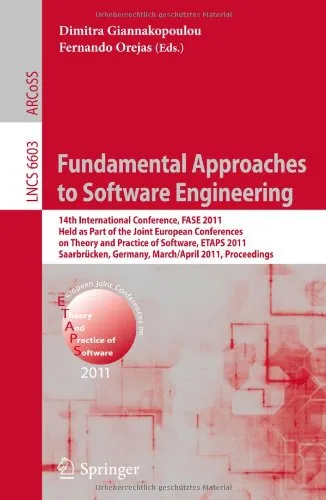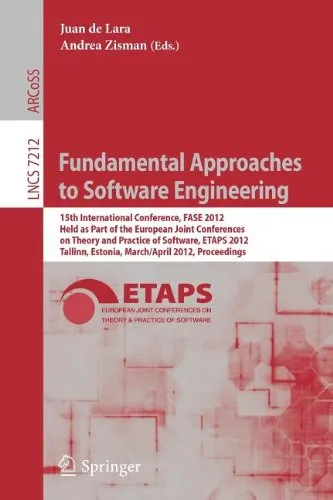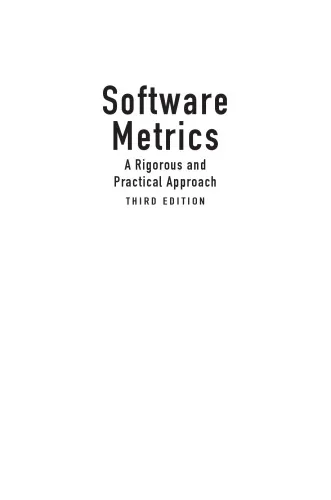Fundamentals of Software Engineering: 6th International Conference, FSEN 2015, Tehran, Iran, April 22-24, 2015. Revised Selected Papers
4.0
Reviews from our users

You Can Ask your questions from this book's AI after Login
Each download or ask from book AI costs 2 points. To earn more free points, please visit the Points Guide Page and complete some valuable actions.Related Refrences:
Introduction
The book "Fundamentals of Software Engineering: 6th International Conference, FSEN 2015, Tehran, Iran, April 22-24, 2015. Revised Selected Papers", is an authoritative compilation of revised and peer-reviewed papers presented at the 6th iteration of the FSEN conference. Esteemed researchers, practitioners, and academics gathered to discuss pioneering advances in the field of software engineering, spanning both theoretical and practical dimensions. This conference brought together ideas that robustly shape the future of a discipline integral to every facet of technological innovation.
This volume emphasizes emerging research topics in software engineering, underlining its multidisciplinary nature. Engaging with everything from formal frameworks and methodologies to practical, executable software development, the book creates a bridge between theory and application for computer scientists, software engineers, and scholars. Edited by Mehdi Dastani and Marjan Sirjani, it consolidates diverse perspectives, offering significant insights for both academia and industry. In a rapidly evolving field, this book stands as a testament to deep thought, intellectual rigor, and the collaborative spirit of innovation.
Detailed Summary of the Book
The book captures the essence of the FSEN 2015 conference by bringing together 20 revised papers, meticulously selected through a rigorous reviewing process. These papers tackle issues of practical relevance while fostering innovation in core areas, such as formal verification methods, distributed systems’ modeling, software development paradigms, and advanced dynamic testing.
The first section delves into formal methods and verification, presenting innovative approaches to model-check complex systems and their correctness. A significant part of the theoretical contributions focuses on improving dependability and predictability in software systems — a foundation for engineering safety-critical systems. The book also traverses contemporary methods for concurrent and distributed systems, discussing methods to handle scalability, component interaction, and fault tolerance.
Another key highlight is the exploration of programming paradigms and model-driven approaches, driving consistency across software development life cycles. Dynamic software testing, practical performance assessments, and improvements in agile development methodologies also find their place in this expertly curated edition. Engaging with cross-disciplinary topics like human-in-the-loop models and real-time behaviors, the research shows its applicability across domains, including finance, medicine, and autonomous systems.
The papers not only illuminate problem spaces but also propose pragmatic solutions that balance efficacy with computational complexity. The book serves as a navigation tool in a sea of innovation, helping researchers, advanced students, and professionals alike to contextualize the multitude of challenges and opportunities in modern software engineering.
Key Takeaways
- Comprehensive insights into formal methods for system design and model verification.
- A practical guide towards managing concurrency in distributed systems, including scalability and security challenges.
- Advances in performance testing and verification for real-time and autonomous systems.
- Emerging trends in model-driven development and human-in-the-loop software engineering paradigms.
- A cross-disciplinary approach to research, integrating theoretical and application-oriented perspectives in software engineering.
- Empirical findings and case studies that extend the relevance of modern research into industrial settings.
- Better understanding of explicit trade-offs between computational complexity and functional utility in engineering systems.
Famous Quotes from the Book
"Formal methods are not just tools; they are the bridge between abstract system design and its reliable implementation in the real world."
"The challenges of distributed systems are not confined to scalability but extend to trust, reliability, and fault tolerance in an increasingly connected world."
"The success of any software engineering effort lies in its adaptability — the capacity to evolve dynamically with the demands of its environment and users."
Why This Book Matters
At its core, this book addresses one of the most pressing questions in software engineering today: how can we design, develop, and deploy systems that are both robust and adaptive in an era defined by complexity and change? By compiling world-class research, this volume serves as a guiding compass for practitioners and academics charting new territories in formal methods, distributed systems, and dynamic testing.
Software engineering is no longer a standalone discipline confined to computing; it underpins virtually every industry – from healthcare and transportation to defense and finance. The insights and research shared in this book have the capacity to impact global industry standards significantly. Moreover, with its emphasis on cross-disciplinary methods and innovation, the book strengthens bridges between academic theories and industrial realities, closing the gap for impactful technological adoption.
In an age where software systems are increasingly interconnected and mission-critical, this book is an invaluable asset for anyone looking to contribute meaningfully to the field of software engineering. Its relevance extends beyond the FSEN conference, offering timeless lessons for those who believe in the transformative power of software in shaping the future.
Free Direct Download
You Can Download this book after Login
Accessing books through legal platforms and public libraries not only supports the rights of authors and publishers but also contributes to the sustainability of reading culture. Before downloading, please take a moment to consider these options.
Find this book on other platforms:
WorldCat helps you find books in libraries worldwide.
See ratings, reviews, and discussions on Goodreads.
Find and buy rare or used books on AbeBooks.
1367
بازدید4.0
امتیاز0
نظر98%
رضایتReviews:
4.0
Based on 0 users review
Questions & Answers
Ask questions about this book or help others by answering
No questions yet. Be the first to ask!
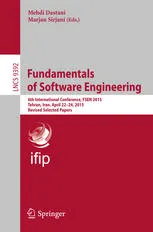
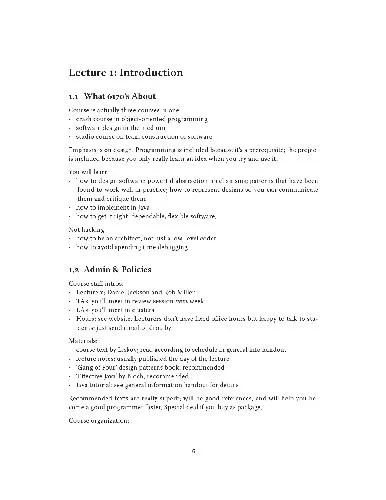
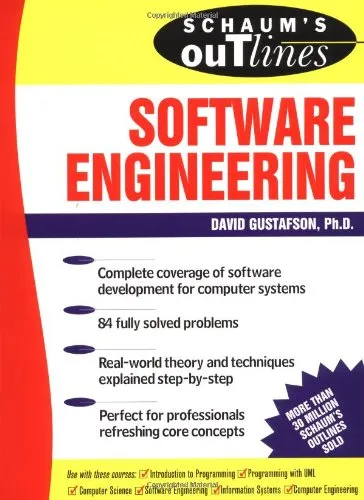
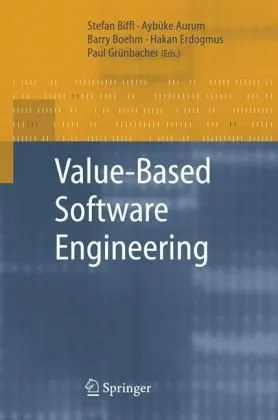

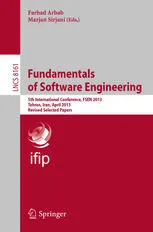
![Fundamentals Of Software Engineering, 5Th Ed [Paperback] Mall](https://s3.refhub.ir/images/thumb/Fundamentals_Of_Software_Engineering__5Th_Ed__31573.webp)
